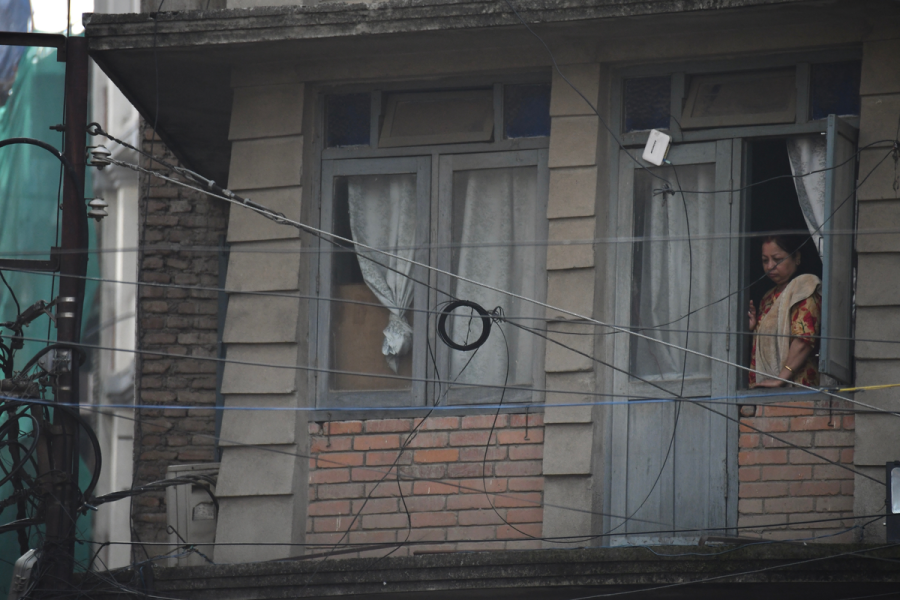Columns
Nepal’s beauty is eroding
How can we complain about ugly buildings when Nepalis individually do not care about the rules?
Sujeev Shakya
The skies cleared up over Pokhara after the Friday rains, and we were treated to the majestic views of the Himalaya. Everyone was scrambling to take a picture, but the tall buildings in Lakeside blocked the views; the wires dangling from every corner made every picture look worse. But it seems that people do not care. The current political cockfight is much juicier to discuss, and it is something that does not require any individual or collective accountability.
However, the way Pokhara is turning into a ghetto of high rise construction speaks volumes of how we do not look at the future of the city or tourism. My memories of the views of the Flatiron mountains from the streets of Boulder in the US or the views of Table Mountain in Cape Town continues to playback in my mind. In Cape Town, many sections of the construction rules ensure that buildings are built lower so that the views are not obstructed. Could we not have pushed the rules around building heights or ensured that the wires go underground? These are not expensive initiatives, but it requires governments that are not corrupt and business people who do not want to continuously bribe politicians and bureaucrats to disregard the rules.
We hate open spaces
The urban sprawl of Kathmandu from the air and ground is becoming a sad sight and we are replicating this haphazard urbanisation across the country. Bulldozer Terrorism is visible in every part of the country, where roads are built to nowhere—only to be taken down by landslides. The roads are built without drainage, resulting in erosion; the contractors and the government love this, as it consistently creates money-making opportunities. Concrete ghettoes are rising in every part of the country as roads connect one set of concrete structures to another. There are no zoning laws, so every building is commercial as well as residential. Every inch of private land meant for agriculture can be converted to a money minting machine. Open spaces can get converted to private land very quickly if one knows how to take care of the key people. The federalisation of decision making has made this even easier.
Young people who have seen the greening of cities in many parts of the world have begun to ask whether Nepalis hate open spaces. In Thapathali, there is a piece of land that was allocated to the Rotary Club of Kathmandu. Rather than building a public library or a park, this space has been used to create a massive concrete building. Land belonging to government universities, colleges and schools also get converted to concrete structures when they are leased to developers. No wonder people spend millions to get appointments to these institutions.
In Kigali, Rwanda, it is interesting to see how they have vacated an entire industrial area to convert into green space to house public parks and recreational areas. Can we imagine the authorities planning the take over of the Balaju Industrial Area or the Patan Industrial Area to convert to a green public park? While Maitaghar was vacated to convert into an open space, its usage and the way it has been maintained and lit at night now speaks volumes of our sense of aesthetic.
Loathsome structures
In Nepal, any structure that encloses space can serve as an eatery or a meat shop or a motorcycle repair shop—or any other commercial establishment. In my neighbourhood in Patan, there are motorcycles that are parked outside these hole in the wall eateries that function under questionable hygiene standards. Questioning these first makes you a capitalist, and then someone without empathy. The cops along with government officials whose palms are greased well to ensure these guys can operate can turn against you, given any pretext. So, questioning these structures can mean that you are risking your life.
Sometimes, I wonder whether it is this factor or the fear of losing out on a source of household income that keeps the population quite, even when the establishments are obviously flouting standards and laws. Similarly, stores, shops and tea shops operate right outside the gates of many government offices. These are potentially run by the people who work there, or by people connected well with the politics of that government office. So, uprooting them becomes near impossible.
Even now, people all over the world continue to identify Nepal with nature, the bravery of the Gurkhas and the hospitality we offer. But our global image has started to become dented. People are starting to see us, like our neighbours, as a country not used to following the rules. It is important to view the issues of the filth, disorder, and haphazard construction from the perspective of our global image.




 19.12°C Kathmandu
19.12°C Kathmandu















